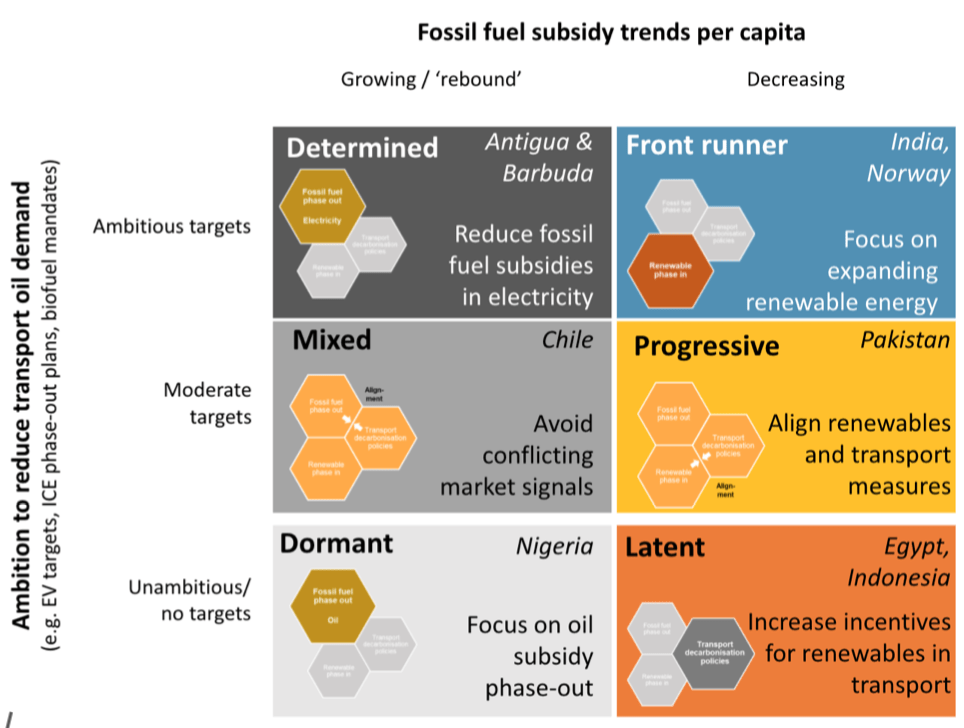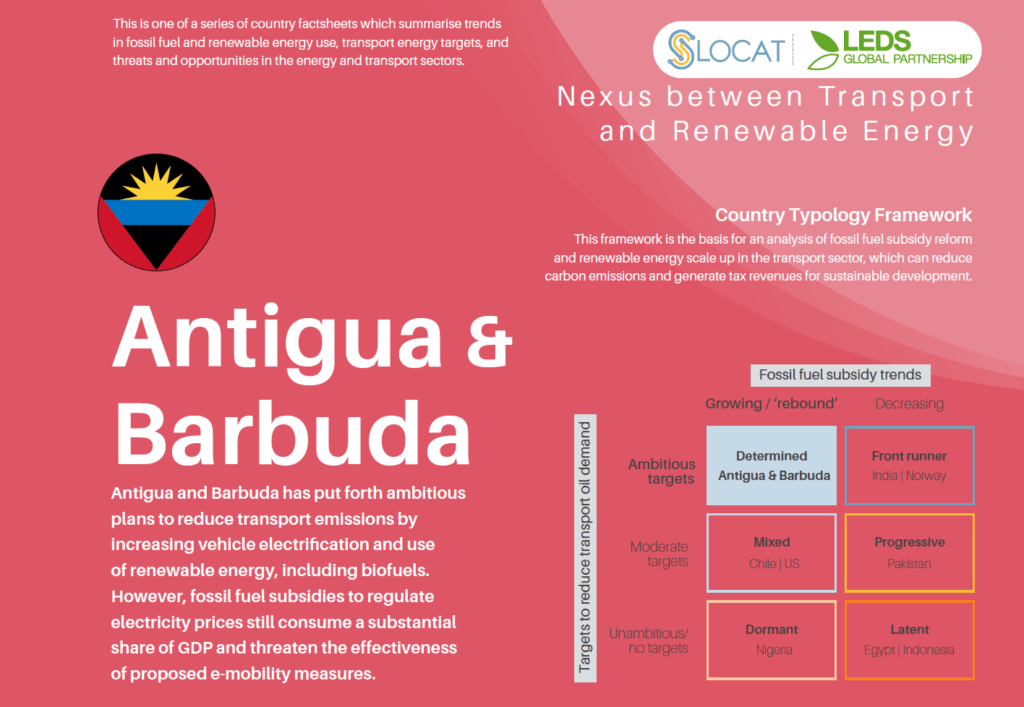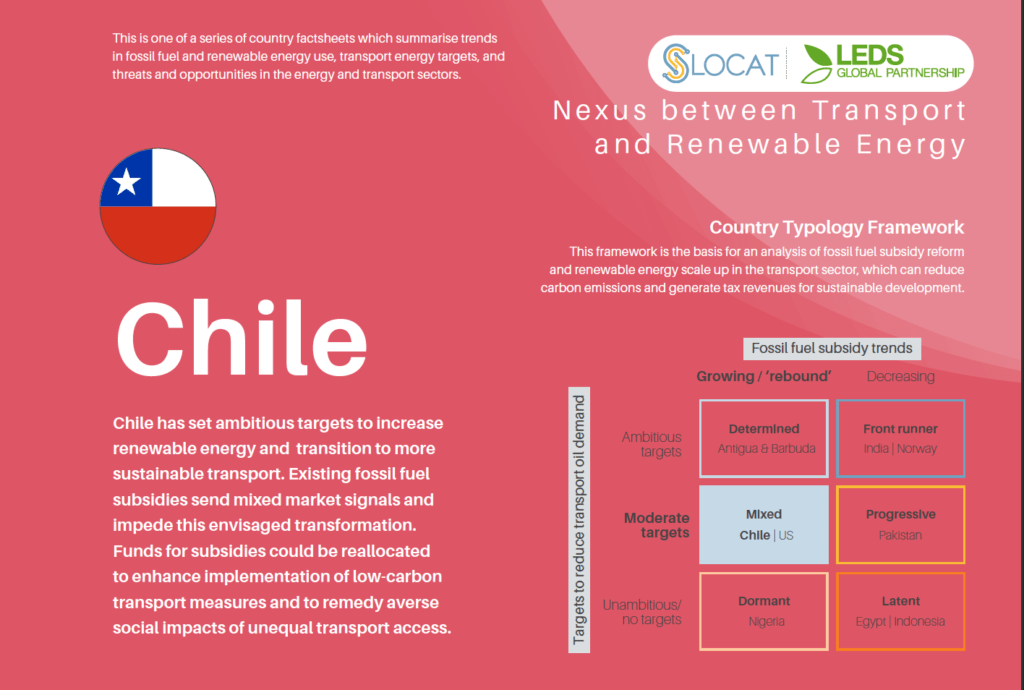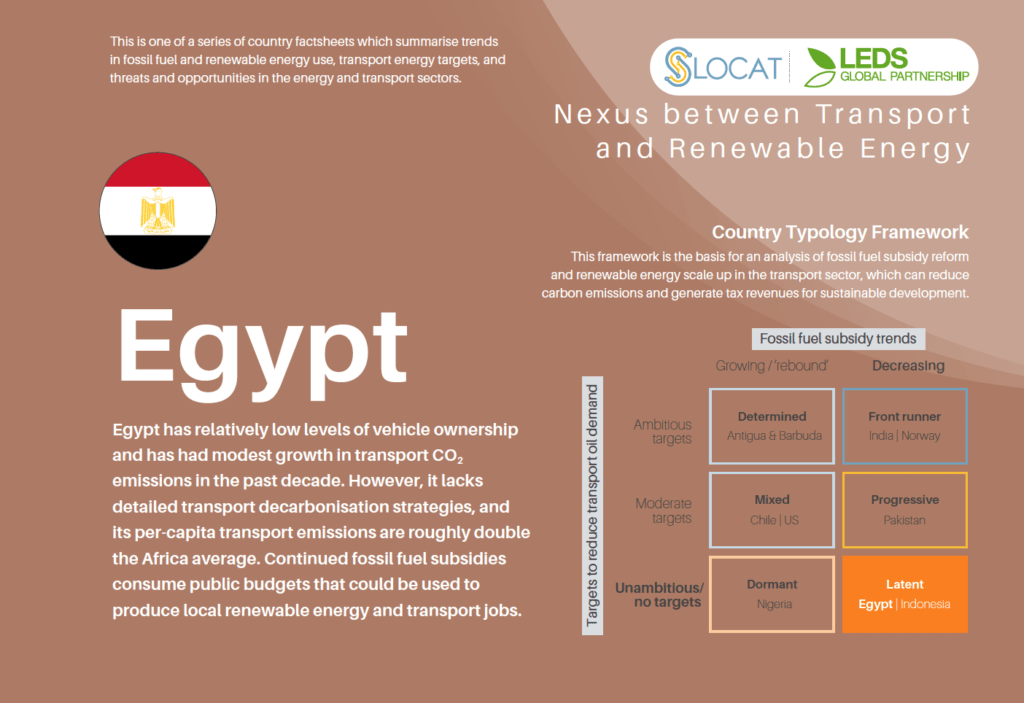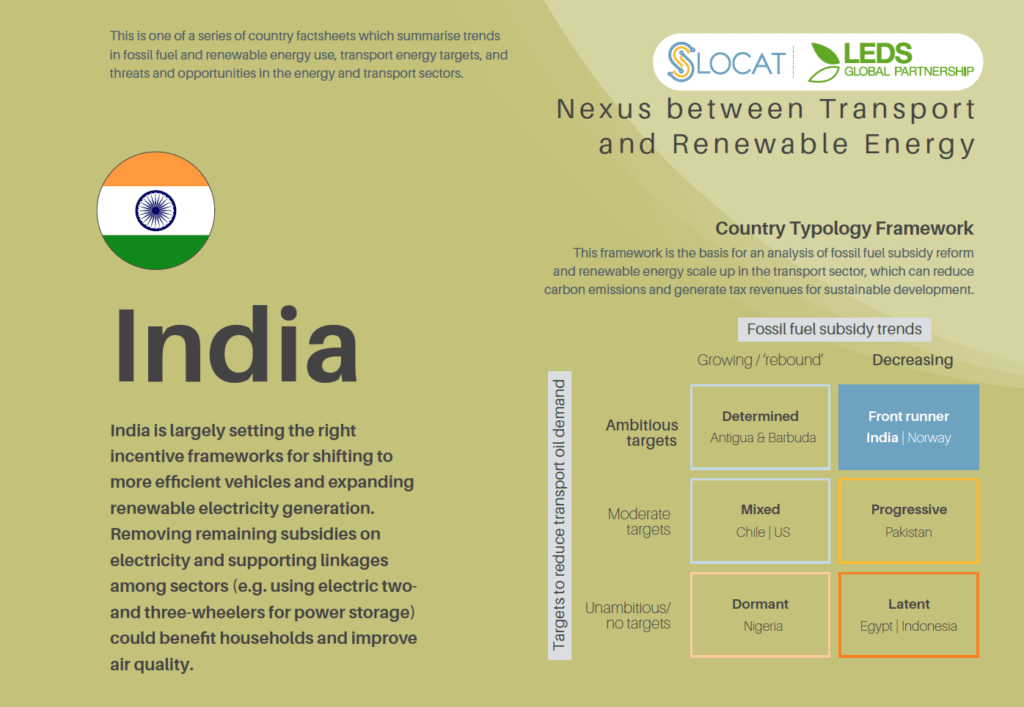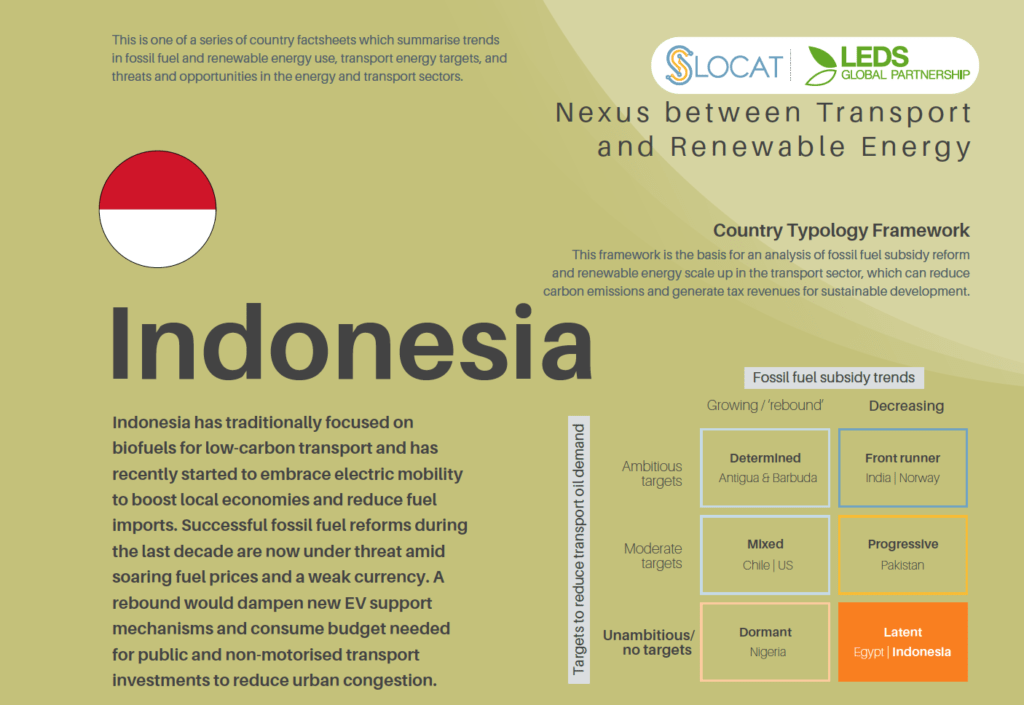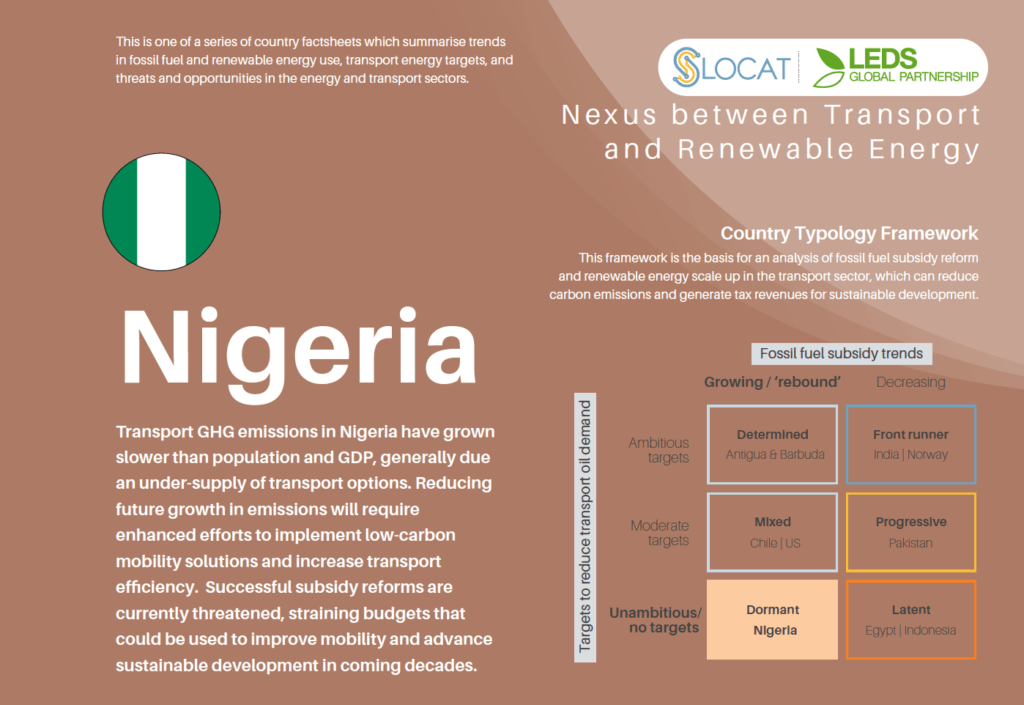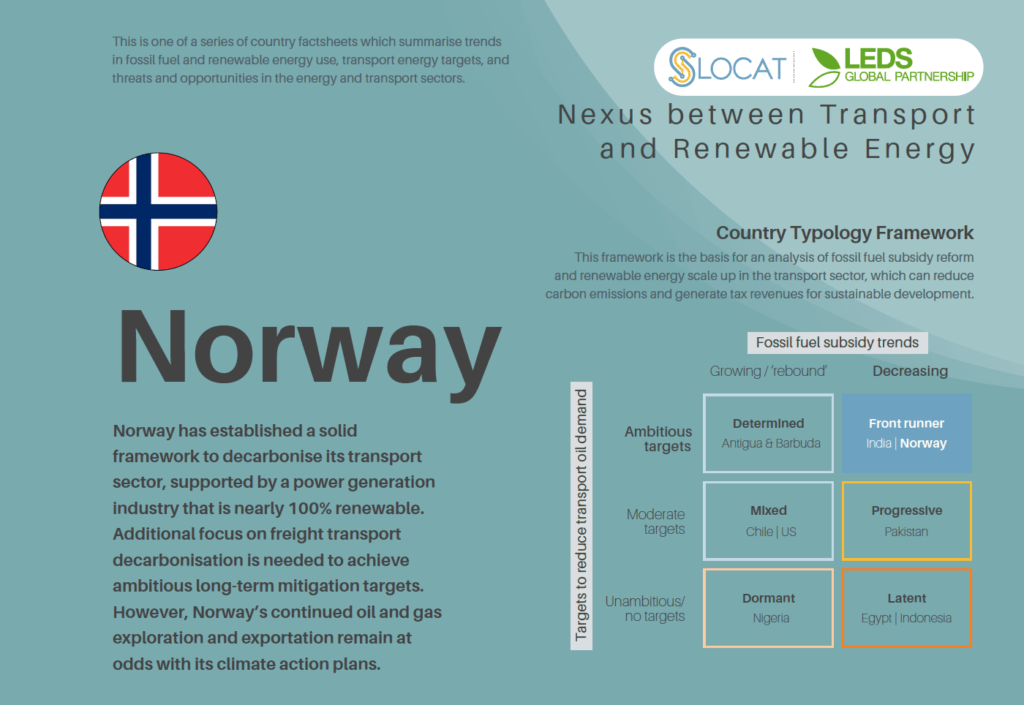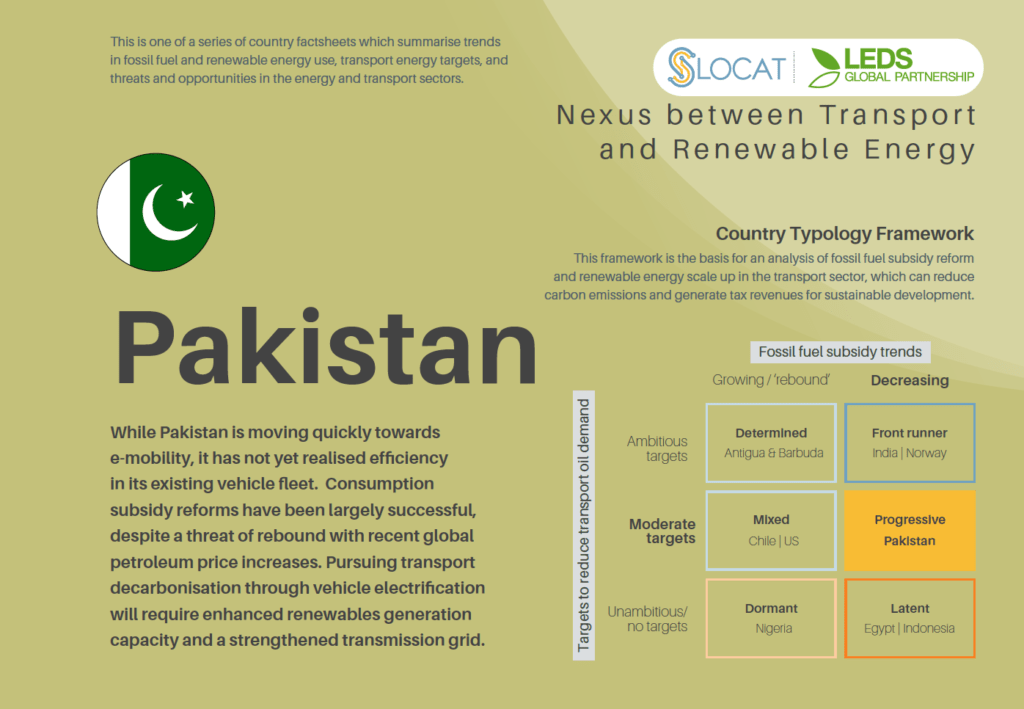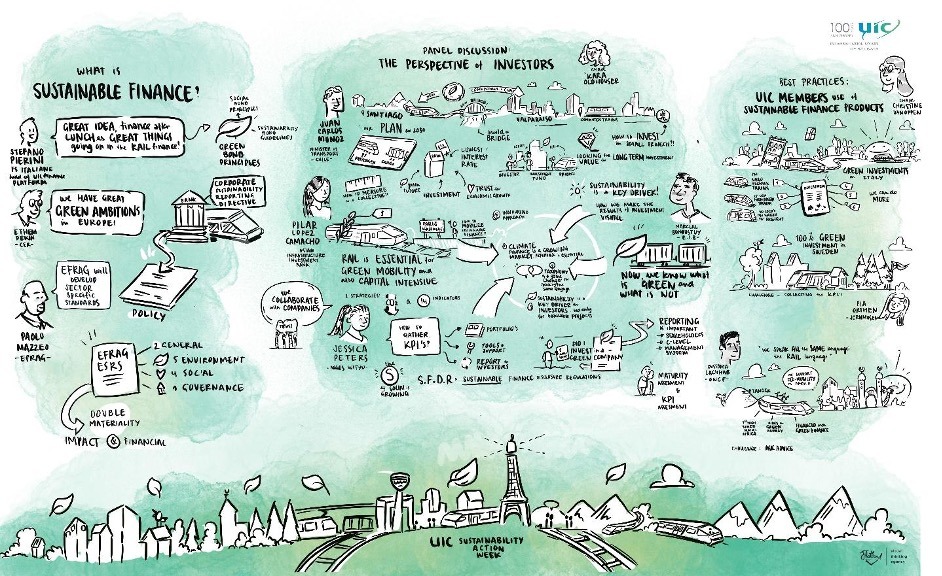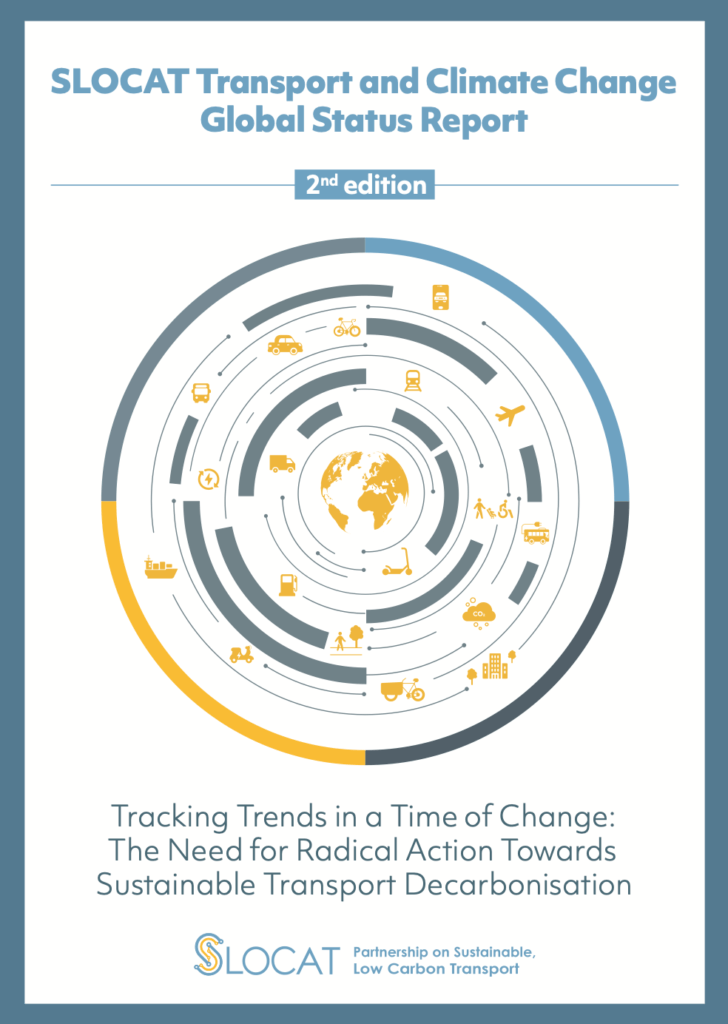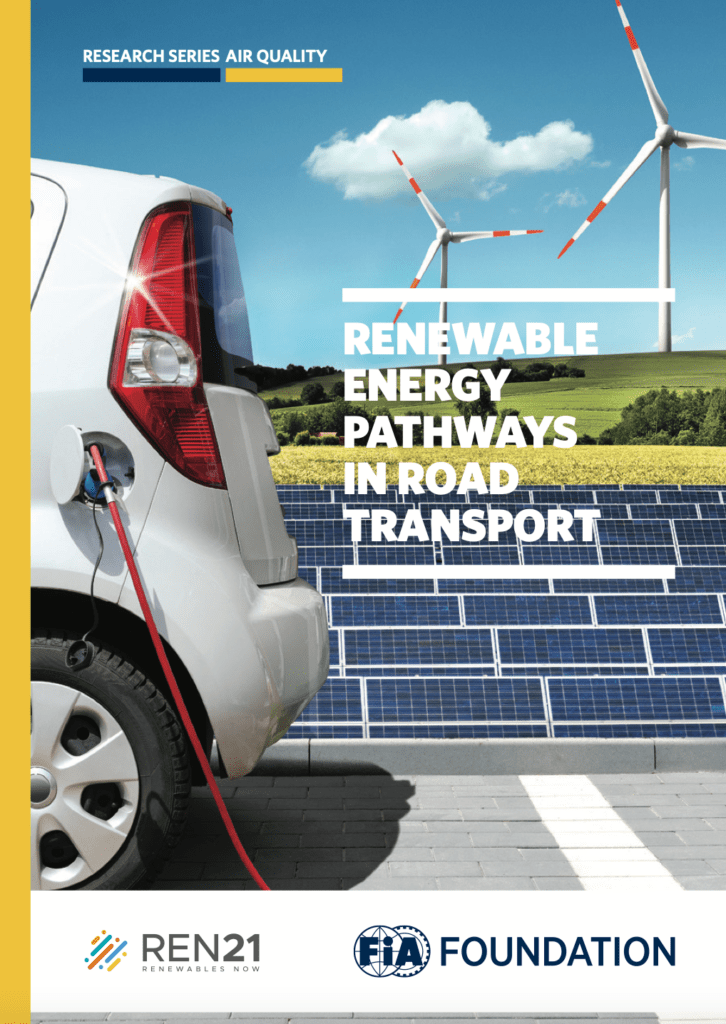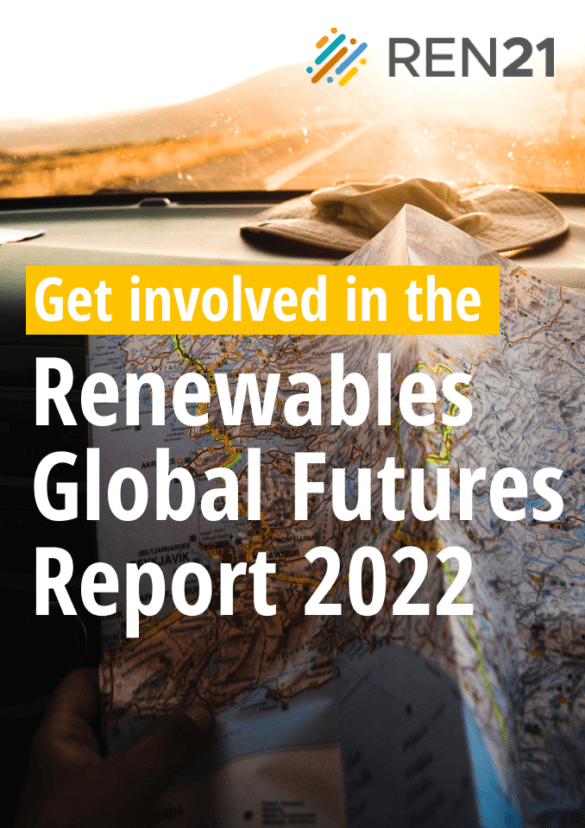Strategies to Phase-out Fossil Fuel Subsidies & Investments and Increase Renewables in Transport
Overview
Strengthening the transport-renewable energy nexus can support two complementary objectives: phasing out fossil fuel subsidies by governments and fossil fuel financing by development banks, and significantly scaling up use of renewable energy for transport.
Global energy subsidies were estimated at USD 5.2 trillion (or 6.5% of global Gross Domestic Product) in 2017. Progress toward subsidy reform is further challenged by the billions of dollars committed to fossil fuels in pandemic recovery measures.
At the same time, progress with deployment of renewable energy for transport is slow, while growth in transport energy demand is rapid. Only 3% of energy in the transport sector is provided by renewables, with biofuels accounting for 90% and renewable electricity accounting for 10%.
Framework Analysis and Country Factsheets
SLOCAT and other partners are investigating how the transport and energy sectors can work together to make the radical shift needed to phase out fossil fuels and scale up renewables.
A summary analysis is built on a framework comparing per-capita fossil fuel subsidy trends and transport ambition to reduce transport oil demand. This framework focuses on eight countries including a mix of importers and exporters across regions, geographies and income levels.
Country factsheets for each of the eight focus countries summarise trends in fossil fuel energy, renewable energy, transport energy, and threats and opportunities across these areas. These fact sheets have been used to support the summary analysis (and a forthcoming issues paper).
The summary analysis and country factsheets have been made possible through the financial support of the LEDS Global Partnership and the technical expertise of Holger Dalkmann (Sustain 2030) and Marion Vieweg (Current Future).
Towards a Gold Standard for Transport Investment
The SLOCAT blog series features experts and change makers who are powering the sustainable, low carbon transport revolution by advancing adequate financing to reach the scale of decarbonisation of the transport sector necessary to achieve Paris Agreement targets.
Benjamin Simmons and Michail Kapetanakis, International Institute for Sustainable Development (IISD)

Lucie Anderton and Joo Hyun Ha, International Union of Railways (UIC)
Additional Resources
Renewable Energy Pathways in Road Transport (2020, REN21/FIA Foundation)
Renewables Global Futures Report 2022 (REN21, forthcoming. The report will investigate the role of renewables in decarbonising the transport sector)
